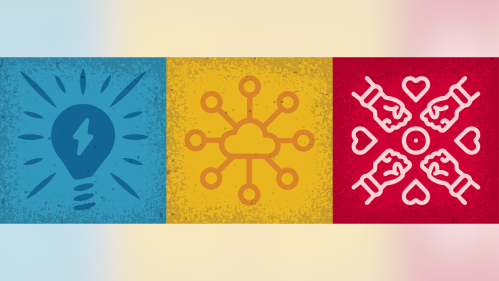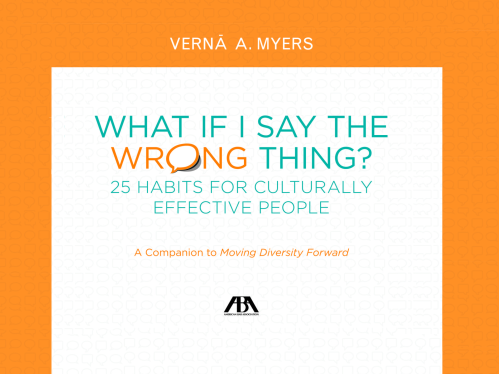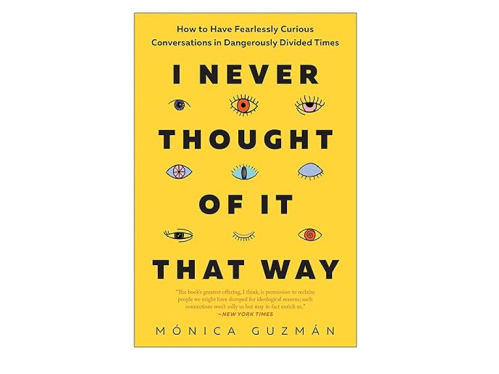
Sustained Engagement and Applied Practice
Designed for sustained engagement through cohort-based learning and/or intensive development for applied practice, which equips participants to serve as co-facilitators, e.g., Bridging the Gap Fellows.
Join a Virtual Learning Community
Don't let fear keep you from engaging!
"What If I Say The Wrong Thing?" is a highly rated, short, easily digestible handbook of thought-provoking tips on how to be, and how to help others become, more culturally effective. Author Vernā Myers explores the pitfalls of engaging across difference and offers solutions in powerful but accessible ways.
Participants in the virtual learning community will use the book to recognize challenges, develop tools for more thoughtful interactions across difference, and understand how our attempts at finding connections can be improved with greater awareness and skill development. Most importantly, participants will learn and challenge their fears together!

Bridging the Gap
The United States has long been defined by the great diversity of its people. Whether that diversity enriches or divides the nation, however, is not a given. Where there is deep difference, there is a need for bridgebuilders: citizens with the mindset and skills to transform diversity into pluralism.
We envision a culture where the heroes are the bridge builders. Towards that goal, the program is designed to reduce the polarization in our country by giving students, faculty, and administrators the skills they need to find common ground across deep divides while solving problems on their campuses and in their communities.

Digging Deeper
Participants who have completed the What If I Say the Wrong Thing: 25 Habits for Culturally Effective People Virtual Learning Community are eligible to participate in the more semi-structured learning community organized about the book, I Never Thought of It That Way: How to Have Fearlessly Curious Conversations in Dangerously Divided Times.
Organized over four-hour-long sessions, the group comes together to discuss the themes that emerge in the book and how to incorporate the strategies into their daily lives.

Grapple and Grow
Engage deeply and wrestle with ideas that challenge your beliefs about difference.
Personal growth often occurs when we experience discomfort. When we avoid discomfort, we can stagnate and miss out on opportunities for learning and development. Discomfort offers us an opportunity to reexamine what we thought we knew (beliefs, habits, and perspectives).